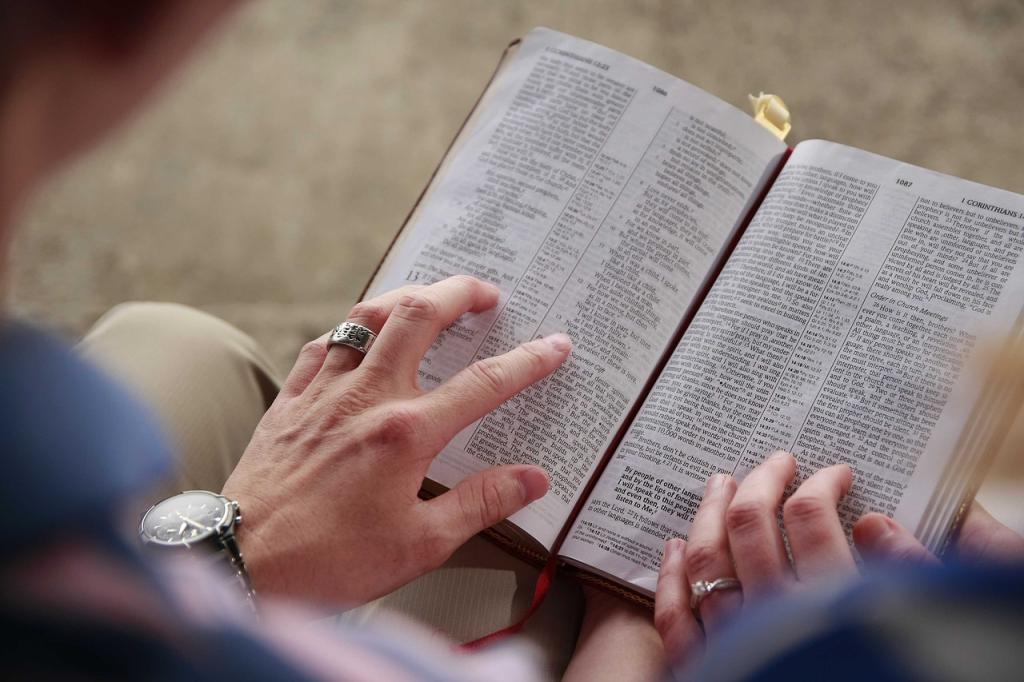First Corinthians is the longest letter in the Bible after Romans, and we should be diligent to interpret it properly. Where can a good commentary be found that would help us do so? I list what I consider the top 10 commentaries on 1 Corinthians since the turn of the millennium.

As with my previous write-ups on top commentaries in Romans and 2 Corinthians, I write from a scholar’s point of view rather than pastor’s. Even so, I would assume that ministers, church workers, students, and regular Bible readers consult commentaries not just to gain pastoral wisdom but also insights from Scripture. We consult commentaries when reading or studying the Bible for multiple reasons. These include gaining knowledge, receiving edification, tips for teaching, insights for practical living or personal enrichment, formulating our ethics and theology, or even just to try to get a higher grade on a biblical studies paper!
Here are my top 10 picks for 1 Corinthians:
-
Craig S. Keener, 1–2 Corinthians. New Cambridge Bible Commentary (Cambridge University Press, 2005)
As was the case with my picks for 2 Corinthians, this commentary once again makes it on the list for 1 Corinthians. With Keener as the interpreter, you can count on the use of many parallels both from ancient Jewish and Greco-Roman literature. His references are often quite unique, which makes this resource, along with his other commentaries, worth owning and consulting repeatedly. The only down side is the short length—at 312 pages, and with only about half of these focused on 1 Corinthians, this commentary does not quite have that “encyclopedic feel” to it as some of Keener’s more lengthy works. Some might consider its short length a plus, but as a scholar I favor the more thorough commentaries.
-
Timothy A. Brookins, Reading 1 Corinthians: A Literary and Theological Commentary (Macon: Smith & Helwys, 2020)
This is the most recent member on the list. The Reading the New Testament series normally present readable commentaries that are slender in size. Although these volumes are not comprehensive in scope, Brookins does a great job of writing a significant commentary on 1 Corinthians that features Greco-Roman parallels, especially from Stoic philosophy. It’s quite a unique gem. The author postulates that philosophical perspectives along with socio-economic factors contributed to causing divisions among members of the Corinthian congregation. Paul steps into this situation attempting to unite the factions.
-
Pheme Perkins, First Corinthians. Paideia (Grand Rapids: Baker Academic, 2012)
This is another non-comprehensive but very readable interpretation of 1 Corinthians that won the Catholic Press Award in 2013. Perkins works with Jewish and Greco-Roman sources and provides good historical insight into the Corinthian situation. She also does an admirable job of keeping up with Corinthians interpretative trends up to and at the beginning of the turn of the millennium.
-
Joseph Fitzmyer, First Corinthians, Anchor Yale Bible Commentary series (New Haven: Yale University Press, 2008)
As with other commentaries by Fitzmyer in this series, you can expect to receive comprehensive treatment of each verse in the letter, a somewhat traditional interpretation, and parallel texts inclusive of the Dead Sea Scrolls. In this regard his commentary does not disappoint. The one setback is that I did not personally find that Fitzmyer kept up well with the ever-changing face of Corinthian scholarship over the years. This volume could have been written 15 years earlier and, except for the bibliography, virtually no one would have noticed the difference.
-
Raymond F. Collins, First Corinthians. Sacra Pagina (Collegeville: Liturgical Press, 1999)
Although not technically written after the new millennium, it won that Catholic Press Association award at the turn of the millennium in 2000. I therefore decided to include it on this list as a new millennium work. This is a good commentary that specializes in rhetorical discourse. Collins also frequently cites parallels from moral philosophers and Hellenistic sources, along with occasional dips into Jewish midrash. It is one of the larger volumes in this series at 703 pages.
-
B. J. Oropeza, 1 Corinthians. New Covenant Commentary series (Eugene: Cascade, 2017)
This is currently the best moderately-sized commentary on 1 Corinthians. This compact work is becoming the new “go to” resource on the letter if you don’t want to spend a bundle for something twice its size (as with the four commentaries below). It is also the most up-to-date commentary on this list when it comes to referencing and engaging with contemporary scholarship. Since it fills in this important gap, it is a great complement to Thiselton’s commentary (see below). Want to know essentially how recent scholars have been interpreting 1 Corinthians? Read Thiselton for scholarship pre-2000; read Oropeza for scholarship post-2000. In this commentary, I also employ an intertextual approach to Scripture that capitalizes on using Jewish Scripture, other ancient Jewish sources, and Greco-Roman literature. Rhetorically speaking, it delivers on style and arrangement. You will gain a number of insights from this very readable work.
-
Roy E. Ciampa and Brian S. Rosner, The First Letter to the Corinthians. Pillar Commentary (Grand Rapids: Eerdmans, 2010)
This comprehensive commentary (990 pages) excels when it comes to parallel ancient sources, balanced interpretations, and an amiable evangelical character. Rosner, and especially Ciampa, flourish when it comes to intertextuality, the study of text relationships. They also engage with contemporary scholarly sources. The middle chapters I found to be especially helpful. They tend to excel in places where many other commentaries skim over. Their amplification and interpretation of the content of 1 Cor 7 (which addresses celibacy, marriage, divorce, courtship, etc.) is one of these highlights.
-
David Garland, 1 Corinthians. Baker Exegetical Commentary of the New Testament (Grand Rapids: Baker Academic, 2003)
This is an excellent comprehensive resource with a good balance of exegesis and interaction with secondary sources. It is, unfortunately, reaching twenty years since its release in 2003, and hence the sources are becoming dated. The commentary is quite thorough while at the same time a little less wordy than three of the four commentaries among the top five (Oropeza’s is the most succinct). It weighs in at 864 pages.
-
Gordon Fee, The First Epistle to the Corinthians. New International Commentary of the New Testament. Second Edition (Grand Rapids: Eerdmans, 2014)
This second edition of Gordon Fee’s commentary offers a much-needed update for his now-almost-classic 1987 edition. The late Fee specializes in solid exegesis, text-critical notes, and engagement with other interpretations, normally in the footnotes. Fee does an exceptional job on the more difficult passages and all things related to S/spirit. If there is a downside, it would simply be that I don’t always agree with his interpretation (and regarding his update on idol meats, I see that the feeling is mutual!) The length of the second edition is 1044 pages.
1.Anthony Thiselton. The First Epistle to the Corinthians. New International Greek Testament Commentary (Grand Rapids: Eerdmans, 2000)
Perhaps the most comprehensive 1 Corinthians commentary in the English language is Thiselton’s interpretation. The amount of secondary sources it engages with is phenomenal, and at 1480 pages, you will almost surely find what you are looking for regardless of which verse you consult. But given the age of this work, now more than 20 years old, it could not engage with more recent scholarship from the twenty-first century. For more recent scholarship, see Oropeza’s commentary (# 5).
Other Commentaries on 1 Corinthians
One recent commentary I have yet to consult is Paul D. Gardner, 1 Corinthians (Zondervan Exegetical Commentary of the New Testament; Zondervan, 2019). Given the way this series attempts to be comprehensive and emphasizes exegesis, I suspect it would easily make the top ten list.
Other older but exceptional commentaries that were published before the turn of the millennium include C. K. Barrett, The First Epistle to the Corinthians, Black’s New Testament Commentary (Peabody, MA: Hendrickson, 1993), Richard Hays, First Corinthians. Interpretation series (Louisville: Westminster/ John Knox Press, 1997), Ben Witherington, Conflict and Community in Corinth: A Socio-Rhetorical Commentary on 1 and 2 Corinthians (Grand Rapids: Eerdmans, 1995), and Hans Conzelmann, 1 Corinthians. Hermeneia (Minneapolis: Fortress 1975), a translation of his earlier Der erste Brief an die Korinther by Hans Conzelmann (Göttingen: Vandenhoeck & Ruprecht, 1969).
And speaking of German sources, as to be expected, some of the best commentaries on 1 Corinthians can be found in this language, inclusive of those written by Eckhard Schnabel, Dieter Zeller, Christian Wolff, and especially Wolfgang Schrage, whose four volume, Der erste Brief an die Korinther (Evangelisch-Katholischer Kommentar zum Neuen Testament: EKK), is the most thorough commentary on 1 Corinthians that I have ever run across. Also worthy of mentioning is Peter Arzt-Grabner, Ruth Elisabeht Kritzer, Amphilochios Papathomas, Franz Winter, 1. Korinther. Papyrologische Kommentare zum Neuen Testament 2. (Göttingen: Vandenhoeck & Ruprecht, 2006). This commentary specializes in referencing many word parallels to 1 Corinthians written on ancient papyri. Due to the scope of this piece, commentaries from other languages will not be addressed.
The Bible reader, minister, student, and scholar will benefit greatly from studying 1 Corinthians when consulting the commentaries on this list.
Image: Bible Bible Study Reading Christian Religion via pixabay.com














